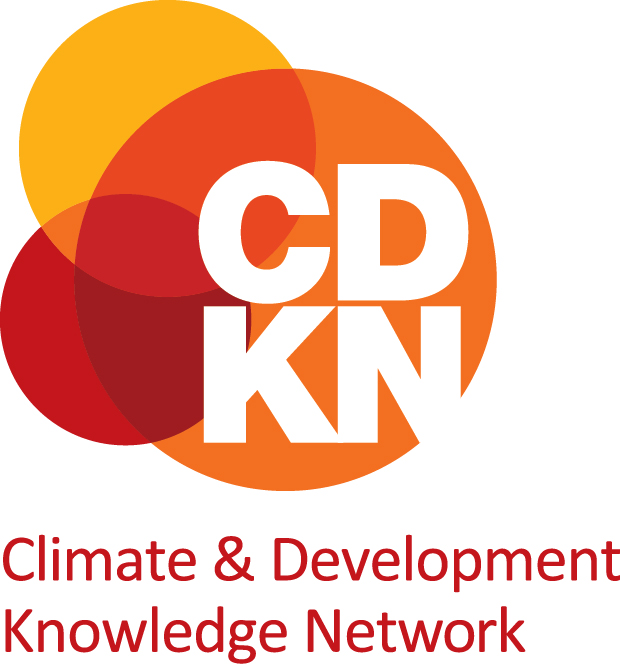Location
The Climate and Development Knowledge Network (CDKN) aims to help decision-makers in developing countries design and deliver climate compatible development.
Our mission
The Climate and Development Knowledge Network supports decision-makers in designing and delivering climate compatible development. We do this by combining research, advisory services and knowledge management in support of locally owned and managed policy processes. We work in partnership with decision-makers in the public, private and non-governmental sectors nationally, regionally and globally. We hold strongly to the ideals of human development and environmental sustainability.
What we do
CDKN is able to provide support through its alliance organisations and procure the best services from around the world. We strive to deliver the highest quality technical advice, forge uniquely effective partnerships, and drive the latest and best thinking on climate compatible development.
Within the broad scope of climate compatible development, we work across four strategic themes:
- Climate compatible development strategies and plans
- Improving developing countries’ access to climate finance
- Strengthening resilience through climate-related disaster risk management
- Supporting climate negotiators from the least developed and most vulnerable countries.
Members:
Resources
Displaying 1 - 5 of 9IPCC’s Special Report on Climate Change and Land: What’s in it for Africa?
The Intergovernmental Panel on Climate Change (IPCC) published its Climate Change and Land: An IPCC Special Report on climate change, desertification, land degradation, sustainable land management, food security, and greenhouse gas fluxes in terrestrial ecosystems in 2019 (www.ipcc.ch/srccl). We refer to the IPCC’s report in short here as the Special Report on Climate Change and Land. The Special Report was a response to proposals from governments and observer organisations to the IPCC.
IPCC’s Special Report on Climate Change and Land: What’s in it for Africa?
The Intergovernmental Panel on Climate Change (IPCC) published its Climate Change and Land: An IPCC Special Report on climate change, desertification, land degradation, sustainable land management, food security, and greenhouse gas fluxes in terrestrial ecosystems in 2019 (www.ipcc.ch/srccl). We refer to the IPCC’s report in short here as the Special Report on Climate Change and Land. The Special Report was a response to proposals from governments and observer organisations to the IPCC.
Problemas vinculados al cambio y variabilidad climáticos y modelos ejemplares de adaptación por regiones en el Perú
El presente informe describe seis problemas vinculados al cambio y variabilidad climática, así como ejemplos de proyectos ejemplares de adaptación y educación referidos a dichos problemas. En particular, se presentan los problemas vinculados a: (1) desglaciación, (2) escasez hídrica, (3) “heladas”, (4) deforestación, (5) inundaciones y (6) contaminación hídrica.
Collective land tenure regimes and vulnerability reduction in pastoralist societies of the andean altiplano
Based on research into the evolution of land tenure regimes and their implications for the sustainability of pastoral production systems, this document provides public policy recommendations to help sustainable development of pastoralist societies. Evidence shows that collective land regimes create the conditions for the development of sustainable production systems while individual land tenure regimes are unable to create these conditions, endangering the sustainability of pastoralism and rangelands.
Regímenes de tenencia colectiva de la tierra y reducción de la vulnerabilidad de las sociedades pastoras del altiplano
Este documento ofrece recomendaciones de política pública para ayudar al desarrollo sostenible de sociedades pastoras hechas a partir de una investigación sobre la evolución de los regímenes de tenencia y sus implicancias en la sostenibilidad del sistema de producción pastoril. La evidencia muestra que los regímenes colectivos de tierra generan condiciones para el desarrollo de sistemas productivos sostenibles mientras los regímenes individuales de tenencia de tierra no generan dichas condiciones poniendo en peligro la sostenibilidad de los sistemas productivos pastoriles.



